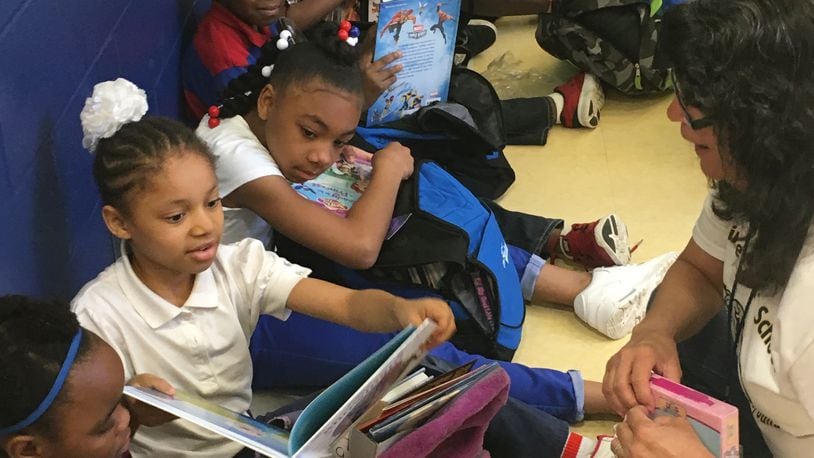2016 STORY: Summer book giveaway helps Dayton students
Superintendent Elizabeth Lolli said the goal is to get 300 incoming first- through sixth-graders to participate in the new session, rather than previous years’ 7-8 week program, which had many students sign up, but fewer actually complete it. Catapult provides the curriculum and hires DPS teachers to handle the instruction, which includes an online component.
“It’s an hour and a half of reading, an hour and a half of math and an hour and a half of enrichment (each day), with a couple field trips built in for the kids who show up and come all the time,” Lolli said, adding that the focus is to keep students moving forward academically. “We actually have not seen any movement in the past four years with the way that we’ve done it, in a variety of ways.”
Dayton’s school board last year made several efforts to get more students to sign up for summer work. Lolli said the district ended up serving about 300.
2015 STORY: Mad River students thrive in summer program
Much educational research has shown that student summer activities — whether pure academic work, or just going to the library or reading and writing anything — play a key part in whether those students avoid “summer slide,” where students come back to school behind where they were three months earlier.
This is an especially big issue in lower-income communities like Dayton, where access to age-appropriate books and opportunities for travel and museums may be lower.
Lolli said DPS teachers this spring will contact parents of students who need extra support, to ask them to send their children to the summer program. She said the focus is on those children, but if there is capacity, DPS won’t turn away other students who want to come.
2014 STORY: BELL summer program helps local districts
The district has not finalized which school buildings the program will be held in, but there will be one each in East Dayton and West Dayton, according to Lolli. She said given the other summer programs DPS is supporting — Freedom Schools at Fairview and Dayton Boys Prep, plus Miracle Makers at Ruskin — there will be five sites for summer programming spread around the district.
Lolli said Catapult has provided programming for DPS in the past, and works with many local private schools.
“We’ve not seen the kind of results you would hope because the longer (previous summer schools went), the more attendance drops off,” Lolli said. “We try to have our teachers contact parents and let them know, hey, it’s a good thing for your child to attend, please get them there.”
2017 STORY: Funding for after-school programs key for students
About the Author
